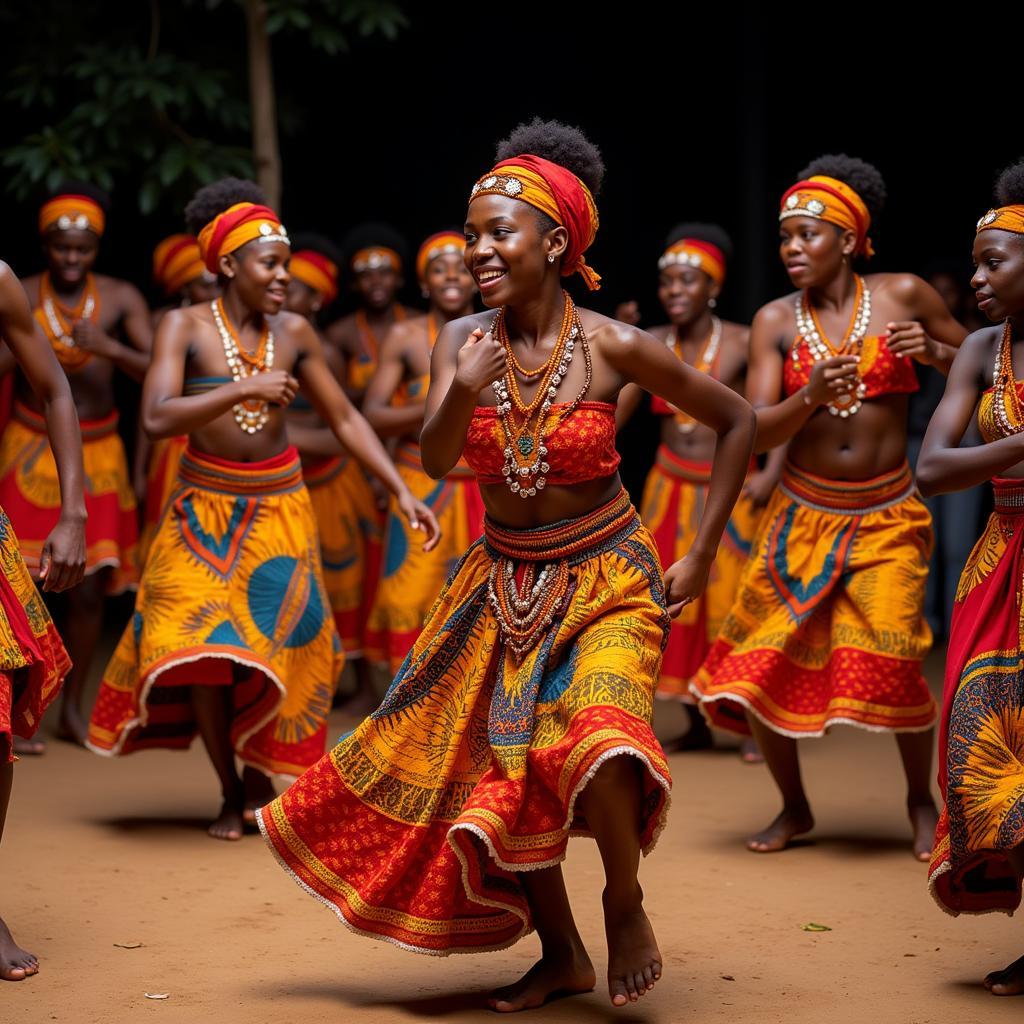African History and Culture: A Rich Tapestry of Diversity
African History And Culture represent a vibrant tapestry woven from millennia of human experience, encompassing a vast continent of 54 countries and countless ethnic groups. From the ancient civilizations of Egypt and Ethiopia to the powerful kingdoms of Ghana, Mali, and Songhai, Africa has a rich and complex past that continues to shape the present.
 Ancient Egyptian Hieroglyphics
Ancient Egyptian Hieroglyphics
Unveiling the Depths of African History
Contrary to popular belief, African history is not solely defined by colonialism. While the impact of European powers from the 15th century onwards undeniably left its mark, it is crucial to recognize the millennia of pre-colonial history that laid the foundation for African societies today. Archaeological discoveries, oral traditions, and written accounts tell tales of powerful empires, sophisticated trade networks, and flourishing centers of learning that thrived long before European contact.
For instance, the Great Zimbabwe ruins in modern-day Zimbabwe stand as a testament to the architectural prowess of the Shona people, who constructed a thriving city without mortar, utilizing only stone.
A Celebration of Cultural Diversity
Africa is a continent bursting with cultural diversity. From the vibrant fabrics of West Africa’s kente cloth to the intricate beadwork of the Maasai people in East Africa, every region boasts unique traditions, art forms, and languages. Music and dance play a vital role in African culture, serving as forms of storytelling, celebration, and spiritual expression. The rhythms of the djembe drum, the melodic sounds of the kora, and the energetic movements of traditional dances captivate audiences worldwide.
 Traditional African Dance Performance
Traditional African Dance Performance
The Enduring Legacy of African Culture
African culture has left an indelible mark on the world. The transatlantic slave trade tragically dispersed millions of Africans across the globe, carrying with them their traditions, beliefs, and artistic expressions. From the music of the Americas to the culinary delights of the Caribbean, the influence of African culture can be felt far beyond the continent’s shores.
In recent years, there has been a resurgence of interest in African history and culture. Museums are showcasing African art and artifacts, scholars are re-examining colonial narratives, and individuals of African descent are reclaiming their heritage and celebrating their roots.
Conclusion
Exploring African history and culture is a journey of discovery, revealing a continent brimming with diversity, resilience, and creativity. Understanding Africa’s past is essential for appreciating the complexities of the present and for shaping a more inclusive and accurate global narrative. By celebrating the richness of African history and culture, we gain a deeper understanding not only of a continent but also of humanity itself.
Frequently Asked Questions about African History and Culture
1. What are some of the most significant ancient civilizations in Africa?
Ancient Egypt, Kush, Axum, Carthage, and the Land of Punt are just a few examples of the remarkable civilizations that flourished in ancient Africa.
2. What is the significance of oral tradition in African culture?
Oral tradition plays a vital role in transmitting history, knowledge, and values across generations in many African cultures. It serves as a living record of the past and a source of cultural identity.
3. How has colonialism impacted African history and culture?
Colonialism had a profound and often devastating impact on Africa, disrupting traditional social structures, exploiting resources, and leaving a legacy of political and economic challenges. However, it is crucial to recognize the resilience of African people and their ongoing efforts to reclaim their narratives and shape their own futures.
4. How can I learn more about a specific African country or culture?
There are numerous resources available, including books, documentaries, museums, and online platforms dedicated to exploring the diversity of African history and culture.
5. What are some ways to respectfully engage with African culture?
Approach learning about African culture with sensitivity and an open mind. Seek out authentic experiences, support African artists and businesses, and educate yourself about the continent’s rich history and diverse traditions.
Need More Information?
For further insights into specific aspects of African history and culture, explore these related articles:
We are dedicated to providing comprehensive information about the captivating world of African Life.
Contact us for any inquiries or assistance:
Phone: +255768904061
Email: [email protected]
Address: Mbarali DC Mawindi, Kangaga, Tanzania.
Our customer support team is available 24/7 to assist you.

